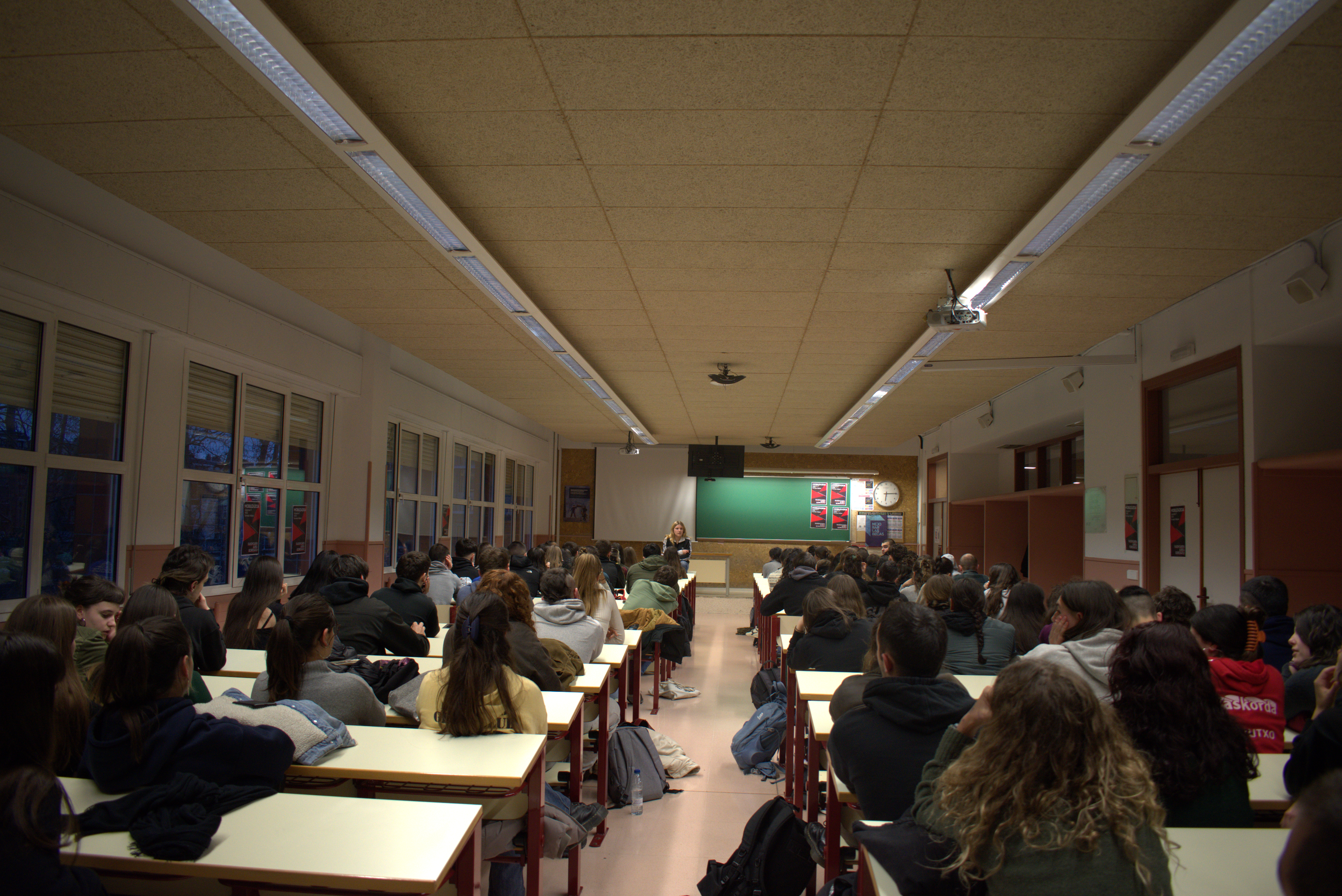"We want to be the alternative to UNED"
- Iñaki Alegría (UEU Director) and Iratxe Esnaola (UEU Motor Group member) believe it is time to create a university in Euskera online. Despite youth, people feel like learning: because they want to find a new job, because they did not learn as a young person, because they love the knowledge... But these new students don't go to class, they're on the net. The UEU highlights the vacuum: in Basque there is no degree online.
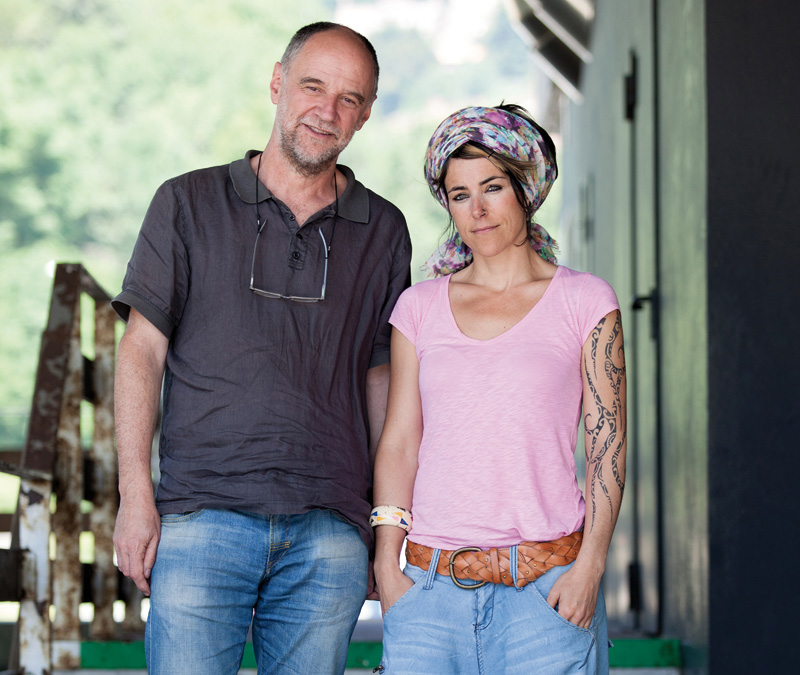
Is it about filling a vacuum?
Iñaki Alegría: There is no intention to replace the classroom, it is an alternative university model, oriented to people of another profile. To put it somewhat, they would be offered as the studies of UNED (National University of Distance Education) and for that student profile, but adapted to new technologies and new pedagogical methodologies.
Iratxe Esnaola: The public object is different.
Wouldn't it be like UNED?
I. Esnaola: UNED is not in Basque.
I. Joy: UNED says it is a distant university and we say that ours will be online or e-learning.
I. Esnaola: In distance learning, you're working from home, on your own, and you go to exams. In online learning you do the entire course online, there are exercises, there is collaboration, you are not on your own, you have tutors, there are teamwork, there are types of teachers. It is a very different concept and is closely related to the pedagogical model.
Who should be involved in this project?
I. Esnaola: The EU is ready to launch this project, but it cannot do it alone. The support of the Basque Government is essential, and the support of other universities, at another level and otherwise, but it is essential. Presential universities must believe that they win with this project. On the other hand, the online offer in Euskera will not be able to guarantee the pace of development it needs.
What contacts have you had with them?
I. Joy: In 2003 we started talking to the Basque Government. He was frustrated with the change of government, and perhaps it was too early. In the last two years we have had contact again, but very superficial. We have also been with the UPV/EHU, on the advice of the Basque Government. Conventional universities are dedicated to classroom teaching, operating in a media way due to the crisis.
We have received good words of cooperation, but a clear commitment is now needed from the administration.
Iratxe Esnaola:
“Our situation is very curious, we feel able to take it all forward, but we need help. Let’s say almost financial support.”
Universities have addressed you to the administration.
I. Joy: And vice versa. The government has a university plan, and that university plan shows the need to boost on-line teaching, but it does not tell universities what we propose zehaztasunarekin.Jaurlaritzak they have to do and the universities answer that they are a classroom university and that they have a lot of work.
I. Esnaola: We officially cannot give any degree because we are not a university. We propose the creation of a new university that can give its degrees, but in cooperation with other universities.
I. Joy: In the first step the titles may be given by the UOC [Universitat Oberta de Catalunya] or the UPV/EHU, but the intention is to create a university.
I. Esnaola: And that doesn't mean prisoners don't develop their online offer.
I. Joy: They are developing, but not the whole degree is in Basque. In Spanish is the UNED and the International University of La Rioja (UNIR) is learning a lot from Euskera. We want to be the alternative to UNED. So the UOC was born 20 years ago. Catalonia asked for the transfer of the UNED and they didn't get it, and they said they were going to create the one there. The Foundation was built between the government, some universities in the area and the Caixa. They made a national project to look for an alternative to UNED and also with innovation, online, sending notes in two words and doing tests beyond the formula.
Have you had any dealings with the UPNA?
I. Joy: We have an agreement, but on the online issue they are turning around. In any case, this project would promote collaboration not only with the universities of the CAPV, but also with the Public University of Navarra and the centers of Baiona. But the first impulse has to be given by the government.
This project cannot be led by a political party in government. You have to keep in mind that one degree takes four years in total, and in this model people will do it in 6-8-10 years, it's a long-term project.
I. Esnaola: Permanent wager. There is the same vacuum as in all other projects on Euskera, and the responsibility for this project should also lie with those who are not Euskaltzales. You may not study Euskera at that university, you may not know Euskera, but at least you have to seek your support or your rejection. It is not a Euskaltzaleon project, it has to be a project to guarantee the right to study in Basque.
I. Joy: This project is going to be carried out at the moment, and consensus is needed.
Why do you say it's time?
I. Joy: In 2003, it was perhaps too early for society to realize that this model was going to be fundamental. Now, these kinds of universities are being created everywhere. In La Rioja, Valencia, Barcelona, in addition to the UOC, another one has been created. They are knocking at the door, and we, in addition to being Basques, know other languages, and it will be increasingly difficult for us to achieve a minimum of reference.
I. Esnaola: Because the existence of this project does not mean that we Basques do not learn online. We learn, but in other universities and in other languages. Because it's not in Basque. It is time, precisely, because it is evident that in society there is such a demand or these forms of learning are increasingly used. Today, the passion for self-training is deeply rooted in society.
Iñaki Alegría:
“Online universities are being created everywhere: La Rioja, Valencia, Barcelona... They are knocking here at the door, and we, in addition to being Basque, know other languages, and it will be harder and harder for us to achieve a minimum of reference”
Has economic viability been analysed?
I. Joy: We need public prices, if you put a private price, being there the UNED, and considering that the Euskaldunes are also Castilian parasites, there is a problem there. On the other hand, it cannot be said that it is cheap, but to put a good base you do not have to spend a huge amount, on cement, on buildings… The groups of students can not be very large, but with little money you can do a nice project.
I. Esnaola: The EU has made its own way in this. Its pedagogical model of on-line education is defined. It uses Moodle in postgraduate and continuing education. All this is developed, it's about adapting it to other levels of learning.
I. Joy: EUR 1 million to you what do you think, much or little money?
Little.
I. Joy: Well, with a million, you can do things.
I. Esnaola: According to the feasibility study carried out, 50 students/year would be required for each grade.
You've proposed to start with half a dozen degrees.
I. Joy: We think about starting with 2-3 degrees in collaboration with the UOC, but time goes by, and maybe we have to create the university and start with 6-8 degrees.
I. Esnaola: Anyway, we're open, it's not a closed project. First with two degrees and then gradually going up? Well, it goes up gradually.
Have the needs of students and faculty been analyzed?
I. Joy: An in-depth analysis of the Business Administration degree has been carried out. We wanted to start with a degree compatible with unemployment and the productive fabric, and we have also chosen it because of the myth that it has more difficulties to offer in Basque. Once the examination has been carried out, we have been able to see that there are specialists, teachers and tutors.
I. Esnaola: The EU has no doubt that there is an Euskaldun teaching staff, it is precisely in the EU that many meet and we do not foresee any problems in finding teachers.
I. Joy: On the other hand, an investment will have to be made initially by qualification, in order to adapt the materials, prepare the platform...
I. Esnaola: Our situation is very curious, we feel able to take it all forward, but we need help. Let's say almost financial aid.
I. Joy: Economic and solid. You can't tell people, "come learn with us!", and two years later you don't have continuity because there's no money.
I. Esnaola: A political decision is needed that will continue the legislature to the legislature.
Aztiker, at your request, asked the Euskaldunes between 25 and 55 years old to get to know the potential students and their characteristics.
I. Joy: They were asked if they planned to conduct university studies, would they do them online, if it would be an impediment to do so in Euskera, and more questions. We got 700 answers. Four percent planned to study, so the universe rose from 25,000. The Basque country showed a 10% disadvantage. Opinions on qualifications and prices were different. Between UEU members and those who have been on UEU courses, through Google, we did a simpler survey and got 800 answers. So we concretize the degrees and we have a more detailed picture.
What qualifications are considered?
I. Joy: If you start with two degrees, the priority is Business Administration and Psychology, but it's not closed. Below is a title related to teaching, Pedagogy or Social Education, the humanities in general. In Engineering, some are difficult to do online, but a Multimedia Engineering, one of Informatics and Audiovisuals at a time, is being very successful.
I. Esnaola: The offer is very successful and it is easy to know who is successful, which qualifications are viable.
The UEU had the Universidad Vasca project. This project has not moved on. Is your alternative the new proposal?
I. Joy: I would say that they are complementary. The online service is one line within the strategy of the Basque University, but it does not replace the other.
Online offer in Basque at the university: situation and challenges with the days What goals did you have and have achieved?
I. Esnaola: The objective of the day was to make an open reflection on the possible creation of a university in Euskera online and that is why we invite all the agents that will have something to do with this project. The reflection was very fruitful and we can say that the objective was fully met, as it was very clear what are the keys to the success of a project like this and, at the same time, the need to overcome the initial mistrust of the presential universities was evidenced. It can be said that we have entered the implementation phase, the determination phase.
I. Joy: From September onwards we will start asking for meetings and, at the same time, we will enter the specifications to show that what we say is feasible.
Azken asteetan zenbait unibertsitatetako ate irekien jardunaldietara joateko aukera izan dut. Semea aztertzen ari da zer ikasiko duen datozen urteotan eta, erabakia hartu aurretik, komeni da aukera guztiak begiratzea. Unibertsitate bakoitzak badu bere misioa, bere izaera, bere... [+]
Martxoaren lehenengo lanegunarekin batera, komunikabideetan azalduko ez diren aldaketak etorri dira EHUn. Azken Lan Publikoko Eskaintzaren ondorioz, ehunka langile –arlo tekniko eta administrazio zerbitzutakoak– orain arte okupatzen zuten lanpostutik atera eta beste... [+]
Leporaturikoa ez onarturik, eta sare sozialetako kontuak "lapurtu" zizkiotela erranik, salaketa jarri zuen Arabako campuseko Farmazia Fakultateko irakasleak. Gernikako auzitegiak ondorioztatu du ez dagoela modurik frogatzeko mezu horiek berak idatzitakoak diren ala ez.
Lau mila karaktere ditut kontatu behar dudana kontatzeko. Esan behar ditut gauzak argi, zehatz, soil, eta ahalko banu polit, elegante, egoki. Baga, biga, higa. Milimetrikoki neurtu beharra dut, erregelaz markatu agitazioa non amaitzen den eta propaganda non hasi. Literarioki,... [+]









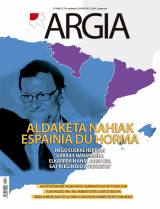

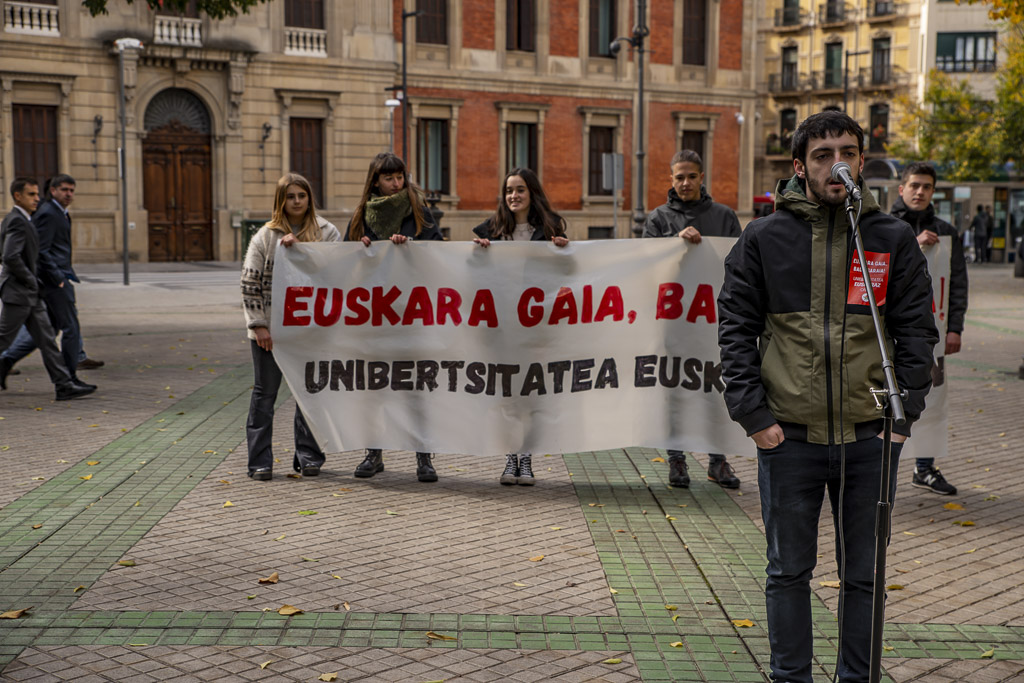

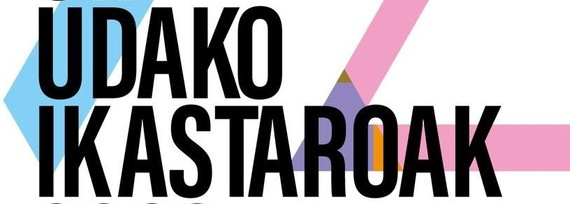
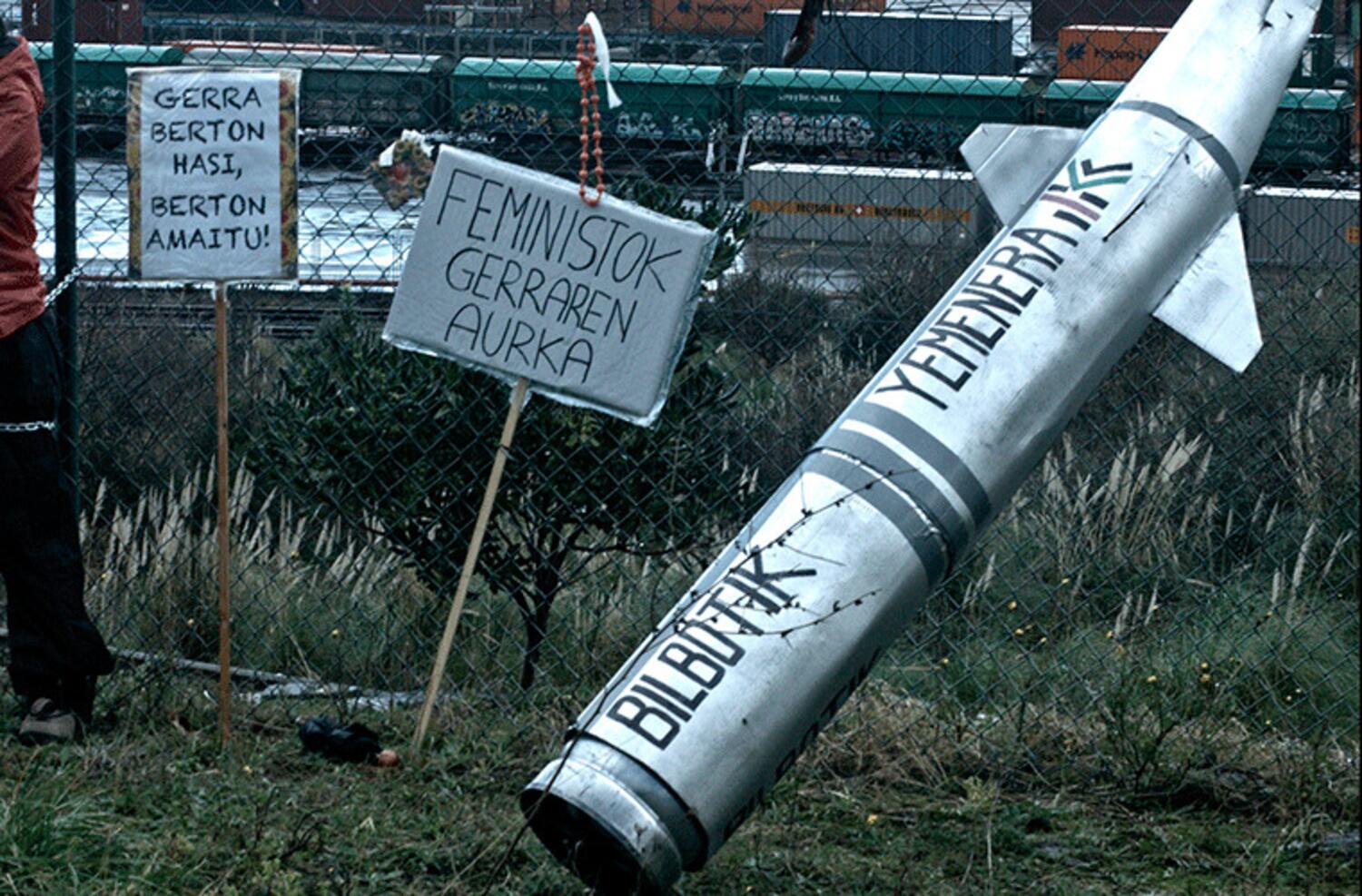
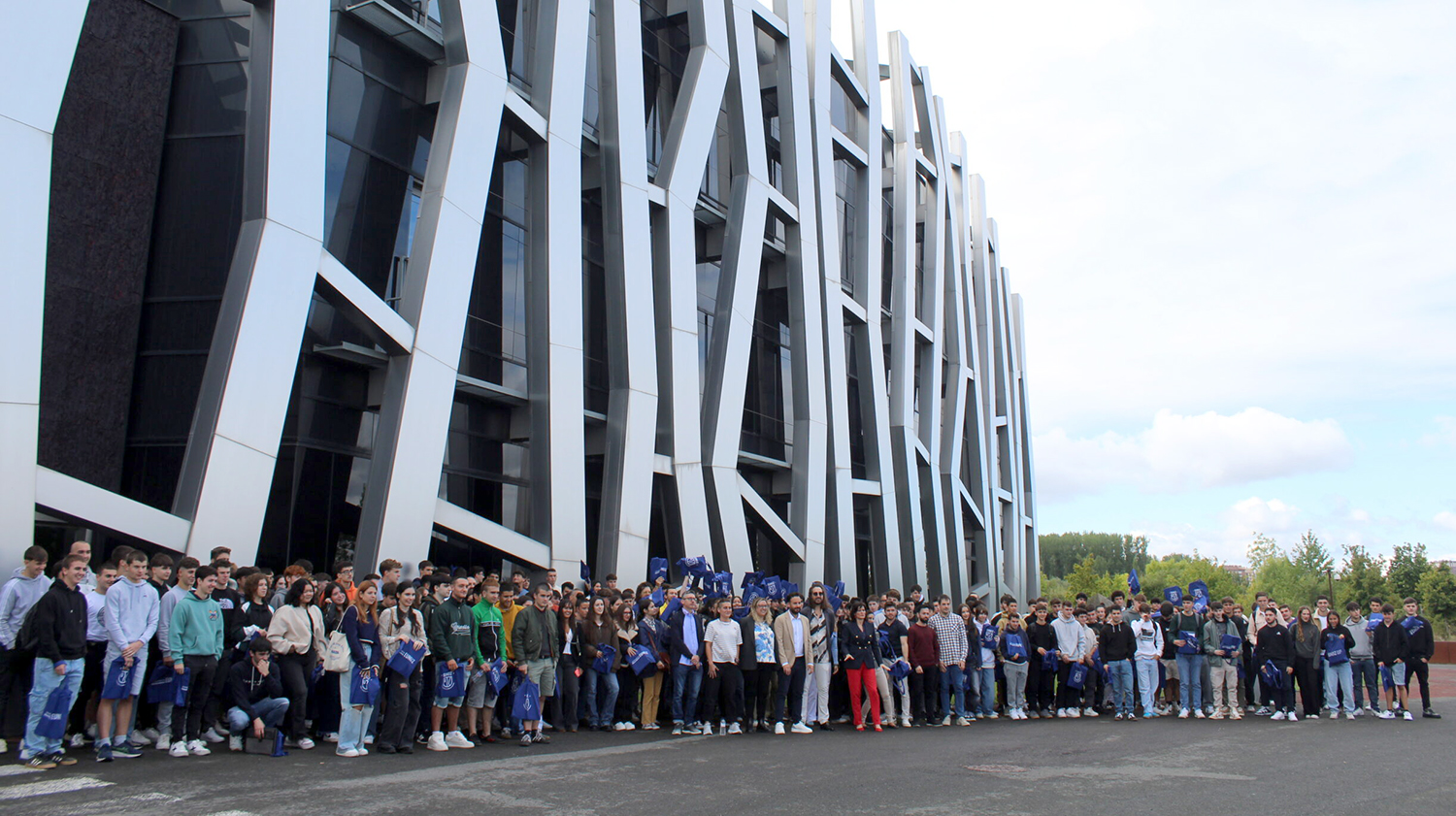

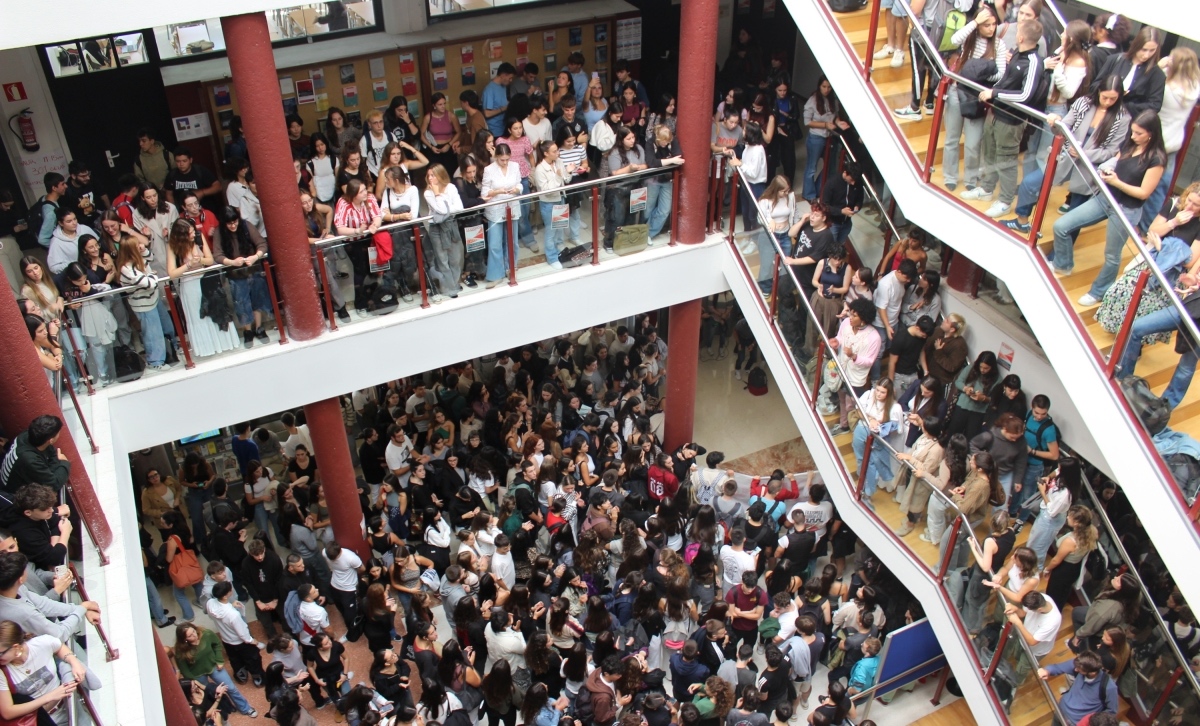

_2.jpg)
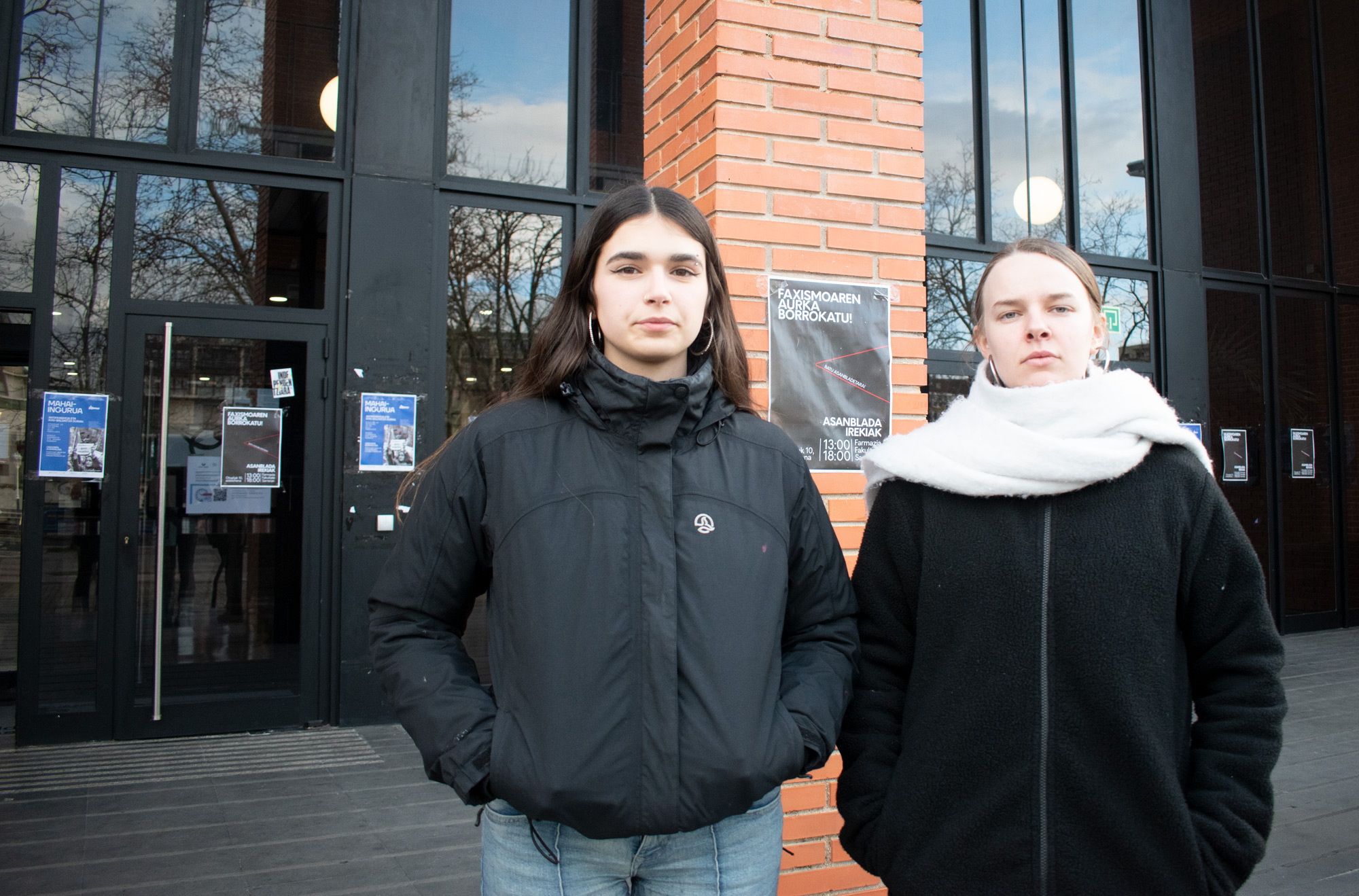
_2.jpg)

_2.jpg)
